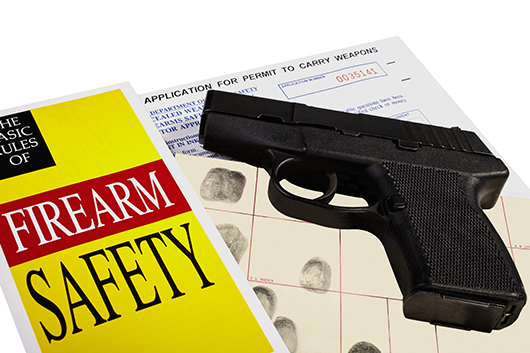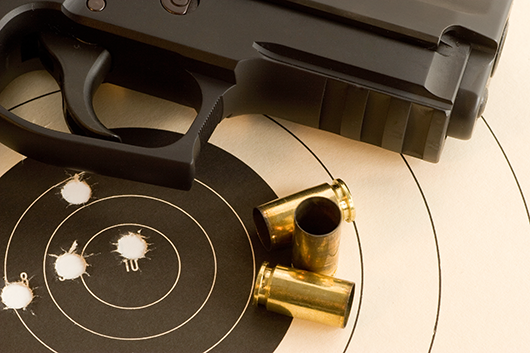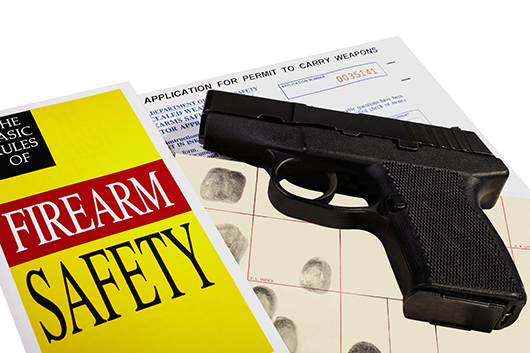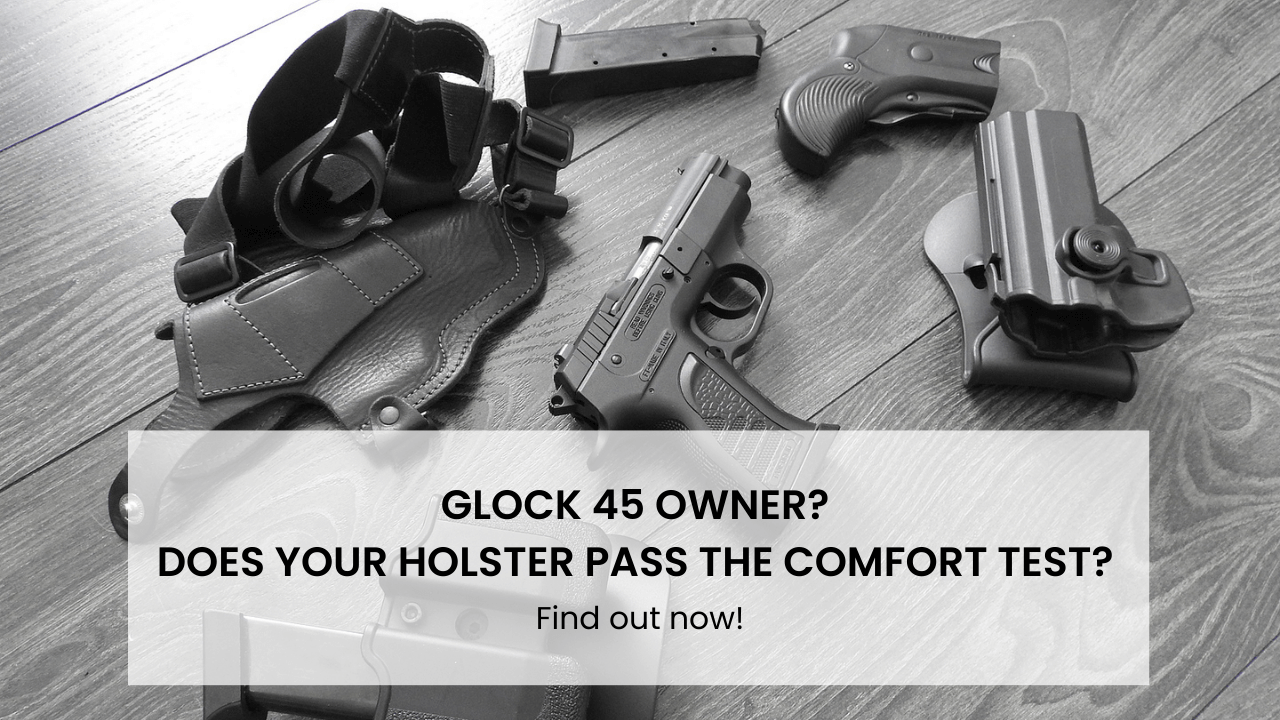Is Concealed Carry Worth It - Should You Carry a Gun Or Not?
Apr 8th 2021

Concealed carry refers to the act of carrying a handgun discreetly in public for self-defense. Carrying a handgun, openly or concealed, is one of the most common ways in which American gun owners exercise their right to keep and bear arms.
Should You Carry a Gun?
Assuming that you can legally own firearms, the question arises, “Should you carry a gun?” Almost 20 million Americans — about 6% of the U.S. population — are licensed to carry firearms for protection against violent crime.
Are you prepared to use physical force, up to and including deadly force, to defend your life or the life of another against the imminent threat of death or great bodily harm? If the answer is “no,” then you should not carry a concealed gun. You can, and should, practice with your weapon on a firing range, but you must be prepared to use it in real life. A handgun is not an amulet that wards off evil.
Owning and carrying firearms is a tremendous responsibility that requires a calm, level-headed demeanor and sound judgment. Avoiding dangerous situations is always the most proactive solution and should always be your first choice. If avoidance and safe retreat are not available options, the firearm is the last-resort self-defense tool.
Before you apply for a concealed-carry permit, however, you should ensure you are familiar with the basic rules of firearms safety and understand the deadly-force statutes in your state, including castle-doctrine and stand-your-ground laws if they exist. A concealed-carry permit class may teach these, but it’s worth learning them on your own time.
Concealed Carry Handgun Criteria

If you’re new to firearms or don’t own a firearm suitable for concealed carry, the best course of action is experimenting with different handguns, manipulating and firing them on a range. Ask friends or family members who own firearms for suggestions. Find a firing range that rents handguns. You’re seeking a handgun that fulfills the following criteria:
Reliability
Your concealed-carry handgun is a tool for immediate self-defense against a deadly threat. When you draw your gun, you need to know that it will fire and cycle 100% of the time. It’s customary for new-production semi-automatic pistols to have what’s known as a “break-in” period.
Snug factory tolerances, leftover burrs, and stout springs can cause temperamental cycling; however, a few boxes of target ammunition should help resolve this. Always use high-quality factory-loaded ammunition unless you’re an experienced reloader, and remember that hand-loaded ammunition explicitly voids some manufacturers’ warranties.
You should also become acquainted with how to clear malfunctions and practice these drills thoroughly.
Comfort
Is the handgun comfortable to hold? How’s the recoil? Can you manipulate the controls conveniently? You should be able to activate the manual safety/decocking lever (if there is one), slide stop, and magazine catch.
If the gun’s recoil is uncomfortable, consider using a different cartridge load. As the weight and gripping surface of a handgun decline, all else being equal, the gun will recoil more powerfully, diminishing your ability to keep the sights on target.
Accuracy
You should be able to hit a man-size target at common engagement distances consistently. You don’t need sub-MOA accuracy. Center mass or the thoracic triangle is the preferred target.
It’s important to remember that your ability to shoot the gun accurately involves more than the mechanical consistency of the barrel. A light, crisp trigger with a short reset is more conducive to accurate shooting than a heavy, creepy trigger with an unpredictable break.
You must be able to see and align the sights clearly. Modern high-visibility three-dot or tritium/fiber-optic combat sights deliver a useful degree of contrast for rapid sight acquisition and low-light shooting.
Concealability
If the handgun meets every criterion except for concealability, it will still fulfill the role of a home-defense weapon admirably. However, for concealed carry, it’s a prerequisite.
Concealability depends on several factors. While the overall length of the firearm — muzzle to butt — contributes to its concealability, the height is more likely to cause printing.
Your choice of holster and carry method is essential. IWB or OWB, adjustable ride height and cant, the use of concealment devices, your choice of belt clips, and other equipment can significantly influence concealability.
Why Carry Concealed?
In the 19th century, carrying handguns openly was more common and socially acceptable. In the 21st century, Americans still practice open carry, but concealed carry is the standard. There are several tactical reasons for the decision to carry a concealed handgun. These include retaining the element.
Concealed Carry Permits
Also called a concealed carry license, concealed pistol permit, or concealed handgun license, this type of permit allows you to carry a concealed firearm in public.
Depending on the state, the carry law may fall into one of the following categories:
Permissive
Shall issue
“Shall issue,” also known as “right to carry,” refers to a non-discretionary licensing system. In a shall-issue state, as long as you meet the state’s requirements regarding eligibility — you can successfully complete a background check and pass a firearms training course — the state must issue you a permit to carry. The issuing authority cannot deny you a permit for arbitrary reasons.
Constitutional carry
“Constitutional carry,” also called “Vermont carry,” refers to a permitless/unlicensed system. In a constitutional carry state, as long as you can legally purchase and own firearms, you can carry a concealed handgun. As of 2021, the list of constitutional-carry states has grown to almost 20, with no signs of growth slowing anytime soon.
Restrictive
May issue
“May-issue” refers to a discretionary licensing system. In a may-issue state, the issuing authority, such as the chief of police or sheriff, decides whether an applicant should receive a permit. You will typically need to show “good cause.”
No issue
Few jurisdictions are explicitly “no issue.” This usually refers to may-issue states or cities that rarely, if ever, issue concealed carry permits to private citizens. San Francisco, New York City, New Jersey, and Hawaii are examples of cities and states that fall into this category in practice.
Applying for a Permit
If you live in a shall-issue or may-issue state, you will typically need to demonstrate satisfactory completion of an approved concealed-carry, handgun safety, or other types of firearm training courses as part of the permit application. The firearms instructor should provide you with a certificate of completion.
Contact Incognito Concealment
At Incognito Concealment, we understand that the decision to carry a firearm should not be taken lightly. If you’d like to ask us questions regarding concealed carry, holsters, and suitable firearms, give us a call at (586) 999-5820.











